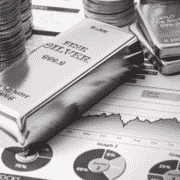The leading economic index declined 0.5% in November and fell for the 20th month in a row, signaling a continued recession.
Economists polled by the Wall Street Journal had predicted a 0.5% drop in the leading index. This index consists of 10 indicators that provide insight into whether the economy is improving or deteriorating.
During the Great Recession from 2007 to 2009, the index experienced a similar consecutive decline.
Key Details
In November, nine out of the 10 indicators in the survey remained stagnant or displayed negative trends. The only positive indicator was stocks, thanks to a recent rally.
Big Picture
Despite widespread predictions of a recession, the economy has defied expectations due to a strong labor market and steady consumer spending. The usual patterns of economic activity have also become less predictable since the onset of the pandemic.
While some economists believe a mild recession is likely, others suggest that the U.S. could avoid a downturn, especially if the Federal Reserve stops raising interest rates. The central bank had previously increased borrowing costs to combat inflation.
Looking Ahead
“Justyna Zabinska-La Monica, senior manager of business cycle indicators at the Board, forecasts a short and shallow recession in the first half of 2024, despite the economy’s ongoing resilience,” stated the Conference Board.
Market Reaction
In Thursday’s trading, both the Dow Jones Industrial Average (DJIA) and the S&P 500 (SPX) experienced gains.











Comments